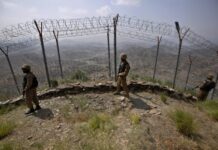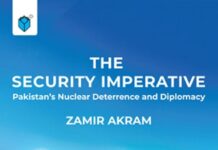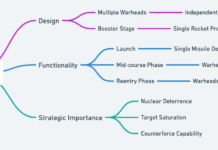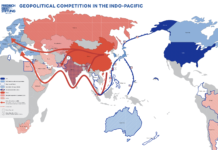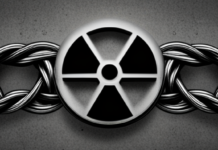Rabia Akhtar
In 1958, Pakistan leased the Badaber base near Peshawar to the U.S. for ten years. The base was to be used as a U.S. communications facility and for ten years, it collected accurate technical and scientific information on the intentions and capabilities of the Soviets. In his letter to President Johnson in 1968, President Ayub Khan stated the reasons why Badaber facility was to be closed and how Pakistan kept its commitments under the agreement even at the risk of damage to its political interests and national security. Ayub said, “We in Pakistan cannot remain unmindful of the swift changes which are taking place in the world and especially around us today. We cannot ignore the threats which are developing to our existence, particularly from the feverish arms build-up in India. The arms supply policy of your country provides us with no comfort. If anything, it aggravates the imbalance between India and Pakistan.” That was 1968. Fast forward to 2020. Read Ayub’s quote again. There are swift changes taking place in the world and in our immediate neighborhood which we cannot ignore. In addition to India’s consistent arms build-up, and military modernization, the Israel-United Arab Emirates peace agreement or the Abraham Accord brokered by the U.S. has direct implications for Pakistan, the biggest of which is that of the encirclement of Pakistan given the prospects of Indo-Israeli proximity near our waters. It is time for Pakistan to think about developing a joint naval base with China at Gwadar to safeguard its national security interests. 1968 was about closing a base. 2020 should be about thinking of opening one.
Just like China’s encirclement by the Quad (India, Australia, Japan and the U.S.) in the Indo-Pacific, Pakistan’s encirclement is also a foregone conclusion by India and Israel in the northern Indian Ocean and the Arabian Gulf. Pakistan is at the heart of the evolving political and security architecture in the Middle East. Not only is Pakistan the only Muslim country with nuclear weapons and the second largest Muslim population in the world, Pakistan is the leading Muslim country raising its voice at international forums for the Kashmiris along with the Palestinians, which hurts the image and political interests of those countries who are the perpetrators of the genocide of Muslims in the two occupied territories by India and Israel, and calls out the international community which is a silent spectator of these war crimes and genocide in the making. Pakistan has survived and not collapsed as a failed state despite best efforts by the great strategic minds around the world working in unison to break Pakistan since its inception to date. Such a state which refuses to collapse, is resilient and bounces back from abyss each time, should be feared and must be curtailed so as not to reach its true potential as a middle power. But with China now, Pakistan has an opportunity in Gwadar, to operate a joint naval base and develop port facilities for the Chinese submarines and surface warships to dock there.
The Abraham Accord, will allow the U.S., and Israel, to drive political benefits in the UAE and later with Oman and Bahrain if and when they join, which would serve their joint effort to isolate Iran in the region. But Pakistan should be under no illusion that the proximity and influence this coalition will gain near our waters will remain limited to Iran.
Israel has sophisticated electronic warfare capabilities with hi-tech weapons on which it has spent billions of dollars primarily in its attempts to scuttle the possibilities of a nuclear Iran. Israel’s electronic warfare capabilities can disrupt electric grids, internet service, cellphone networks, and suspend emergency frequencies so that first responders and law enforcement agencies cannot communicate during emergency. The computer worm, Stuxnet, which sabotaged the Iranian nuclear facility in Natanz, was the first such cyber weapon used by a state which would otherwise have used missiles to destroy that very facility. While with Iran, Israel’s political objectives are different, conveyed in no uncertain terms that its nuclear infrastructure is prone to both military and cyber attacks, with Pakistan electronic and cyber warfare will be employed. And now with open access in the UAE, it should not be too difficult to imagine what Israeli proximity and presence can achieve against Pakistan and its nuclear infrastructure.
China reworked its Armed Forces and learned lessons from the U.S. information and space warfare against it which began in the early 1990s. The formation of PLA’s Strategic Support Force (SSF) in 2015 created synergies between China’s space, cyber and electronic warfare. Reports suggest that SSF is set out to achieve President Xi’s dream of making “PLA mechanised by 2020, informative by 2035, and a world-class army by 2050.” Pakistan’s military strategy too, needs to be reworked to achieve cross-domain integration to augment its cross-domain deterrence and for that there is no better trusted partner than China.
Pakistan must survey the changing nature of emerging threats in its broader neighborhood, especially in the northern Indian Ocean and Arabian Gulf region and proactively map strategic implications of those threats for Pakistan’s national security interests. An immediate need, therefore, is to strategize the role Gwadar will play in future in Pakistan’s strategic calculus which is beyond its current economic outlook and utility.



